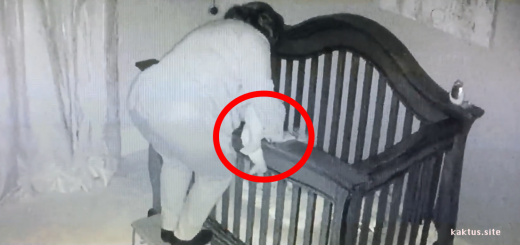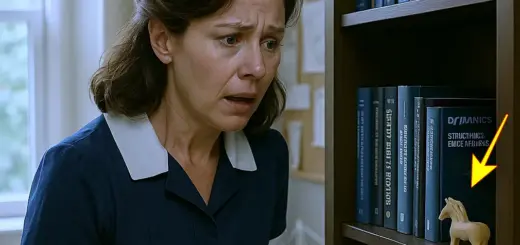«Thank you both for making time for this discussion,» Blackwood began, settling into his chair and opening his briefcase with theatrical precision. «As you know, we’re here to address the financial realities of your situation.»
Financial realities. Not emotional realities, not relational realities. They’d already reduced our marriage to a spreadsheet.
Scott cleared his throat, pulling out his phone. «I’ve prepared a presentation to illustrate the core issues.»
A presentation. He’d made a PowerPoint about our divorce. I watched him connect his phone to the smart TV we’d bought last Christmas—or rather, that I’d bought while he complained about the expense.
The first slide appeared: «Financial Incompatibility Analysis.» Below it, a graph showing two lines: his salary trending upward, mine flatlining at what he assumed was $40,000 annually. He’d used our wedding photo as a watermark behind the graph, our smiling faces ghosted behind his fabricated data.
«As you can see,» Scott began, his presenter voice activated, «the earnings gap has become unsustainable. My career trajectory requires a partner who can contribute equally to our lifestyle objectives.»
The next slide: «Current Asset Allocation Inefficiencies.» He’d actually created a pie chart of our supposed contributions, his portion consuming 90% of the circle, while mine appeared as a sliver barely visible without squinting.
«The disparity creates what economists would call a deadweight loss,» he continued, clicking to another slide showing theoretical calculations. «Resources that could be optimized for growth are instead maintaining an inefficient status quo.»
Deadweight loss. He’d just described our marriage as an economic inefficiency, reduced me to a drain on his theoretical productivity. I took notes on my legal pad, writing «deadweight loss» in careful letters while Blackwood nodded approvingly at Scott’s performance.
«The solution is clear,» Scott moved to his final slide, titled «Proposed Restructuring Terms.» «A clean division that acknowledges the primary contributor while ensuring a humane transition for the dependent party.»
Dependent party. Not wife, not Kelly, not even «soon-to-be-ex.» I’d been abstracted into economic terminology.
Blackwood produced a folder from his briefcase, sliding documents across the table with practiced precision. «These papers outline the terms Mr. Morrison has generously proposed. The apartment transfers to him, given his primary financial contribution. The investment portfolio likewise. He’s even willing to consider temporary support payments to ease your transition.»
Support payments. Scott wanted alimony from me, but they’d reframed it as his generosity. I read through each page with the attention I’d give a complex audit, noting every assumption, every miscalculation based on Scott’s fictional understanding of our finances. The apartment he claimed? Owned by Hamilton Financial Services. The investments he demanded? Managed under my advisory license. Even the car he listed as an asset was leased through my LLC.
«This seems comprehensive,» I said finally, pulling out my pen—the Mont Blanc I used for signing consulting contracts worth more than Scott’s annual salary.
«You’re being very understanding,» Blackwood observed, his condescension barely concealed. «Many spouses in your position would be emotional.»
My position. The position of someone about to lose everything, he meant. Except I wasn’t in that position at all.
I signed each page with deliberate care, the same signature that appeared on restructuring proposals for Fortune 500 companies. Scott watched with barely concealed satisfaction, probably already planning his victory call to Patricia.
«I believe that concludes our business,» Blackwood announced, gathering the papers with obvious relief. «Mr. Morrison, you should be settled in your new arrangement within thirty days.»
After they shook hands, a firm, congratulatory grip between conspirators, and Blackwood departed, Scott immediately retreated to the bedroom with his phone. I heard his voice through the door, excited and slightly manic. «Mom, it’s done. She signed everything. No resistance at all. Exactly like you predicted, completely passive. We can start planning the renovations next week. Yes, the entire apartment will need updating. Her basic taste is everywhere. The kitchen especially, so dated.»
Patricia’s laughter carried through the door, sharp and delighted. They were already erasing me from the space, planning to paint over my presence like I was an unfortunate color choice. I stood in the hallway listening to them celebrate my supposed defeat, holding the copies Blackwood had left for my records.
Predictably passive, they’d said. Basic taste. Dated choices. They were so busy congratulating themselves on their victory that they’d never wondered why someone who managed complex financial restructurings would sign such obviously unfavorable terms without question. Never considered that cooperation might be strategy, not surrender.
I filed the papers carefully in my office, placing them next to the LLC documentation, the property trust papers, and seven years of financial records that told an entirely different story than the PowerPoint presentation still glowing on our television screen. The real presentation would come later, delivered not in slides and charts but in a legal reality that would shatter every assumption they’d made. For now, I returned to the kitchen and began preparing dinner, maintaining the routine of a defeated wife while Scott and Patricia planned renovations for an apartment that had never belonged to him.
The salmon I’d prepared sat untouched on Scott’s plate as he scrolled through his phone, occasionally grunting responses to my attempts at conversation. I cleared the dishes quietly, maintaining the routine of a defeated wife, while mentally preparing for coffee with Marcus Chin the next morning. Marcus had texted me privately after the dinner party, suggesting we meet to discuss «tax implications of major life changes.» We both knew he meant more than taxes.
I arrived at the coffee shop on Pine Street ten minutes early, choosing a corner table away from the morning rush. Marcus walked in precisely at nine, his expression shifting from professional sympathy to curiosity when he saw I wasn’t crying or visibly distressed.
«Kelly, I’m sorry about what’s happening with Scott,» he began, settling into his chair with a large Americano. «That dinner last week was uncomfortable to witness.»
«Actually, Marcus, I need professional advice more than sympathy.» I pulled out a folder from my bag, the one containing Hamilton Financial Services documentation. «Before I show you this, I need to know our conversation is protected by attorney-client privilege.»
His eyebrows rose slightly. «You’re hiring me?»
I slid a check across the table. «One-dollar retainer. Now we’re official.»
Marcus accepted the check with a growing smile, then opened the folder. I watched his expression transform as he read through the LLC formation documents, the property trust papers, and the investment management structures. His coffee sat forgotten as he flipped through seven years of meticulous documentation.
«Kelly, this is…» He paused, reviewing the apartment ownership papers again. «Hamilton Financial Services owns everything. The apartment, the investment portfolio, even the car lease runs through your company.»
«Established two years before I married Scott,» I confirmed. «Every major asset is protected under the LLC structure.»
Marcus leaned back in his chair, a low whistle escaping his lips. «And Scott doesn’t know?»
«He’s never asked. Just assumed that having his name on bank accounts meant ownership. He signs whatever I put in front of him without reading.»
«This isn’t a golden parachute,» Marcus said, still studying the documents. «No, it’s better than that. This is a fortress disguised as a starter home. When Blackwood discovers the structure, he’s going to have a meltdown.»
«Does Scott really think he owns the apartment?»
«He’s already planning renovations with his mother.»
Marcus actually laughed, then caught himself. «Sorry, that’s not professional. But Kelly, you realize he has absolutely no claim to any of this? The divorce papers he had you sign are essentially fantasy documents based on assets that don’t exist in the legal structure he assumes.»
My phone buzzed with a text from Sarah. «Boarding now. See you tonight. Brought my war paint.» My sister’s way of saying she packed her legal files and was ready for battle. I showed Marcus the text.
«Sarah’s flying in from California. She’s a contract lawyer, wants to help me organize everything.»
«Good. You’ll need documentation for when this implodes.» Marcus handed back the folder. «Can I give you some unofficial advice? Let Scott keep digging this hole. The deeper he goes with his assumptions, the more spectacular the revelation will be.»
That evening, Sarah arrived looking every inch the California lawyer in her designer suit and perfect makeup, though her eyes showed the concern of a younger sister. She hugged me fiercely at the airport, whispering, «We’re going to destroy him,» into my ear before pulling back with a professional smile. Back at the apartment, while Scott attended another mysterious «client dinner,» Sarah and I spread seven years of financial records across the dining table where Blackwood had presented his fantasy division of assets just yesterday.
Sarah had brought her laptop and a portable scanner, determined to digitize everything. «Start from the beginning,» she instructed, pulling up a spreadsheet. «Every deposit, every client payment, everything.»
We worked through the night, fueled by coffee and righteous anger. The numbers told a story Scott had never bothered to read. My consulting income from last year alone totaled $347,000. Scott’s W-2 showed $98,000, not the $120,000 he claimed. The bonuses he bragged about were fiction.
«Wait,» Sarah paused at her laptop screen around 2 a.m. «I’m looking at Scott’s LinkedIn profile. It says he’s ‘Senior Director of Strategic Initiatives.'»
I laughed, exhausted and bitter. «He’s a mid-level analyst. I have his actual W-2s right here.»
Sarah turned her laptop toward me. Scott’s profile showed a carefully curated fiction of professional success: «Senior Director since 2019.» «Team of 12 direct reports.» «Key player in multimillion-dollar acquisitions.» Even his education was inflated, listing executive programs he’d attended as degrees he’d earned.
«This is fraud,» Sarah said flatly. «If his company knew he was misrepresenting his position publicly, he’d be terminated immediately.»
«He believes it,» I said, studying his profile photo, that confident smile aimed at a future that didn’t exist. «He’s told the lie so often it’s become his truth.»
Sarah made notes in her legal pad. «This explains his desperation to leave you. You’re the only witness to his actual reality. Without you, he can fully inhabit this fictional success story.»
The next morning, while Scott showered, I met with Thomas Brennan, a private investigator Marcus had recommended. Thomas was unremarkable in every way, which he explained was his greatest asset. We met at a diner near the waterfront, away from anywhere Scott might appear.
«I don’t need surveillance,» I explained. «Just employment verification. A basic background check on his actual position and standing at his company.»
Thomas nodded, sliding a contract across the table. «Standard employment verification runs about three days. I’ll need his full name, social security number, and employer information.»
I provided everything, including Scott’s inflated LinkedIn profile for comparison. Thomas glanced at it and smirked. «Senior Director? At his age? That’s ambitious.»
Three days later, Thomas called with results that exceeded my worst assumptions. «Your husband is on a performance improvement plan,» he said without preamble. «Has been for six months. He’s one missed deadline away from termination. His manager described him as ‘struggling to meet basic analyst responsibilities’ in the documentation I accessed.»
«He told his mother he was being groomed for partner,» I said, feeling a strange mix of vindication and pity.
«He’s being groomed for unemployment. My sources indicate they’re already interviewing for his replacement. They’re just waiting for the end of the quarter to avoid severance complications.»
I sat in my home office, staring at Thomas’s report. Scott wasn’t just lying about our financial dynamic; he was constructing an entirely fictional existence, one where he was successful, prominent, and held back only by his underachieving wife. The reality was he was a failing analyst with an inflated ego, about to lose his job while planning to take assets he didn’t understand weren’t his.
Sarah reviewed the investigator’s report that evening, her legal mind already strategizing. «When this comes out in court—if it gets that far—his credibility will be completely destroyed. A man who lies about his job title won’t be believed about asset ownership.»
I maintained the performance for exactly forty-eight hours after signing those papers, each minute calculated and deliberate. Tuesday morning, I woke at my usual time and started Scott’s coffee with the same precision I’d applied for seven years. Medium roast, one sugar, splash of oat milk. I ironed his blue shirt, the one he thought made him look «executive level,» pressing crisp lines into sleeves that would soon have nowhere important to go. When he grabbed his travel mug without acknowledgment, rushing out to his supposedly critical morning meeting, I simply smiled and reminded him about the dry cleaning.
Wednesday followed the same pattern. I prepared his breakfast, asked about his projects, listened to him inflate minor tasks into major accomplishments. He talked about «strategic initiatives» while I nodded, knowing from Thomas’s report that his actual assignment involved updating spreadsheets and sitting in meetings where no one asked his opinion. I played the devoted wife so perfectly that Scott grew careless, leaving his laptop open, his phone unlocked, treating me like furniture that happened to cook and clean.
Sarah had returned to California but remained on standby, texting me updates as she researched precedents for asset protection in divorce cases. Marcus checked in daily, each message a reminder that I had allies who understood the magnitude of what was coming. The forty-eight hours weren’t just a routine; they were a countdown Harrison Blackwood needed to discover what his client hadn’t signed away.
Thursday morning arrived, crisp and bright. I woke at 5:30, started the coffee, and began preparing breakfast. Scott’s shower started at exactly 7:45, his routine as predictable as a train schedule. I cracked eggs into the pan, watching them sizzle while his phone sat charging on the counter, screen dark and silent.
At 7:52, it rang. Harrison Blackwood’s name appeared on the screen.
I continued cooking, adding white pepper to the eggs exactly how Scott preferred. The phone stopped, then immediately started again. Same name, presumably same panic. By the third call at 7:54, I could imagine Blackwood pacing his office, his assistant watching nervously as the composed lawyer came undone.
The fourth call came at 7:56. This time, I heard Scott’s muffled voice from the bathroom, annoyed at the interruption. The water was still running, but he must have reached for his waterproof phone holder, the one I’d bought him last Christmas so he could take calls during his «important morning routine.»
Even through the closed door and running water, I heard the exact moment Blackwood’s words registered. The water shut off abruptly. Scott’s voice, which had started with irritated confidence, climbed in pitch. «What do you mean, Hamilton Financial Services?»
I added salt to the eggs, stirring them gently to achieve the creamy consistency Scott demanded. Through the door, Blackwood’s voice carried with unexpected clarity, his professional composure cracking like ice under pressure. «The apartment isn’t in your name, Scott. It’s owned by an LLC. Hamilton Financial Services. Established in 2017, two years before your marriage. Your wife is the sole member. You’re not on any ownership documents.»
«That’s impossible.» Scott’s voice had gone thin, strained. «My name is on everything. I’ve seen it on the statements.»
«You’re listed as an authorized user on accounts, not an owner. There’s a massive difference legally. The investment portfolio, same situation. The car lease runs through the LLC. Scott, you don’t own any of the assets you listed. Nothing.»
I plated the eggs alongside wheat toast, cut diagonally the way Scott preferred. The coffee was ready, steaming in his favorite mug—not the «World’s Best Husband» one that sat prominently in the dishwasher, visible from every angle of the kitchen.
«She tricked me,» Scott’s voice cracked like an adolescent’s. «She knew this whole time.»
«The documentation was publicly available. Filed with the state, recorded with the county. Any basic asset search would have revealed it. We should have verified ownership before proceeding. This is… this is catastrophic for your position.»
The bathroom door burst open with enough force to bounce off the wall. Scott stood there dripping, a towel hastily wrapped around his waist, his phone clutched in one hand. Water pooled around his feet on the hardwood floors I’d had refinished with my year-end bonus from the Morrison Group. His face had gone pale except for two spots of red high on his cheeks, like a fever patient or a caught child.
I turned from the stove, holding his breakfast plate in one hand and his coffee in the other. My expression remained pleasantly neutral, the same face I’d worn every morning for seven years. «Breakfast is ready,» I said, setting both on the counter. «Your eggs might get cold if you don’t eat soon.»
He stared at me, his mouth opening and closing without sound. Behind him, Blackwood’s voice continued from the phone, talking about legal ramifications and documentation failures, but Scott wasn’t listening anymore. His eyes moved from my face to the «World’s Best Husband» mug in the dishwasher, to the breakfast I’d prepared with the same care as every other morning, and I watched the exact moment he understood.
«You knew,» he whispered. Not a question. A revelation.
I picked up my own coffee, the mug from the financial consulting conference where I’d been a keynote speaker, and took a measured sip. «Your phone was ringing quite insistently. Harrison seems upset about something. You should probably call him back.»
Water dripped from his hair onto his shoulders, each drop marking time like a metronome. He looked smaller somehow, standing there in our kitchen—my kitchen—like he’d shrunk in the shower. The confident director who’d delivered PowerPoint presentations about «deadweight loss» had been replaced by a confused man in a towel, trying to process how thoroughly he’d been outmaneuvered.
«The LLC,» he started, then stopped, struggling to form the accusation.
«Hamilton Financial Services,» I confirmed. «Established 2017. All properly documented and filed. You signed acknowledgments every year when I did our taxes. Page thirty-seven of the return, Schedule E, where it lists LLC income. You’ve signed it seven times.»
























































